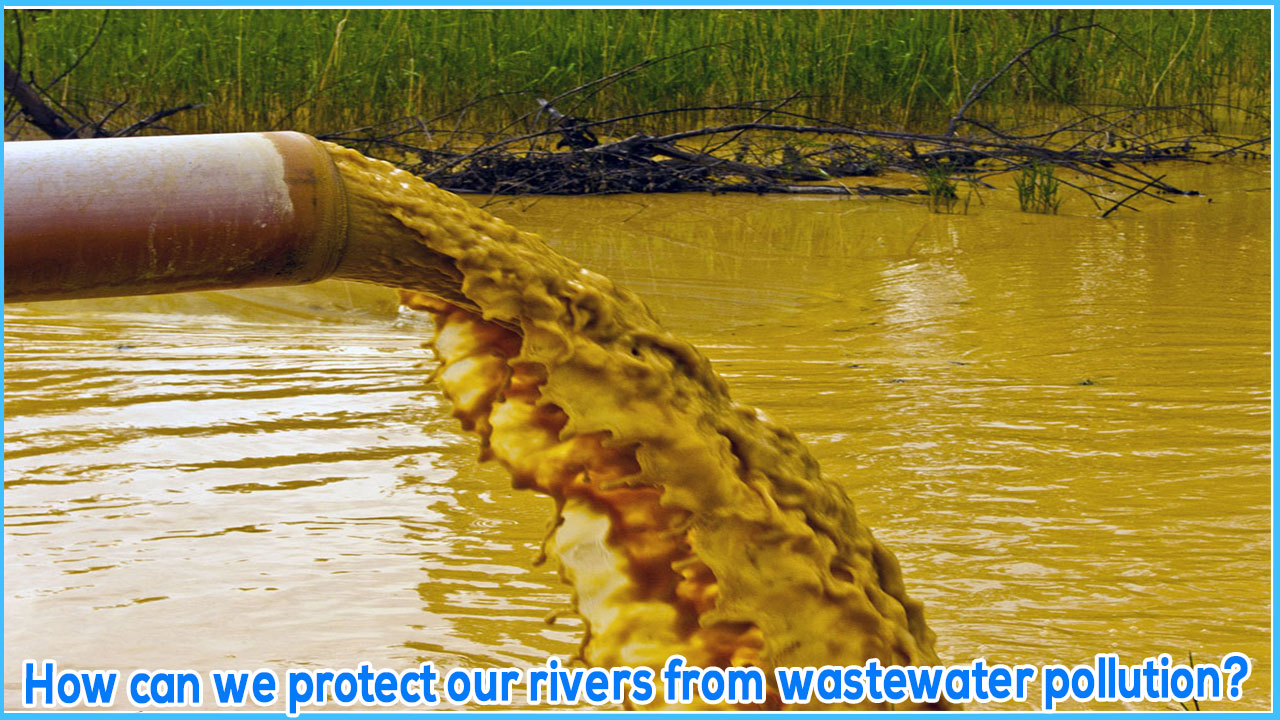Keeping rivers and lakes clean is the duty of all citizens as it is the source of our drinking water and food production. When these streams are polluted, there are few escape routes. Rivers are the lifeline of human beings because they benefit people in many ways. Rivers are not only the source of water for human consumption, but also support agriculture and help in other ways. Rivers are our lifeline because we are completely dependent on them for our existence. Our planet is 70% water, but only 1% of it is river drinking water. However, it is a pity that most rivers in the world are heavily polluted. The main reasons for this alarming situation are complete ignorance of our environment and the care of rivers and banks. The Ganges is now considered one of the most polluted rivers in the world, even though it is the most sacred of all the rivers in India.
So, it's time for us to take some tough action. There is still a chance to save the dying river. The dramatic changes in environmental conditions clearly show that our world is heading in the wrong direction. If we humans want to secure our lives, we must protect our rivers from pollution. When river water is polluted, it has some harmful effects on us humans. Therefore, we must always try to keep the rivers clean and free of pollution.
There are several steps we can take to control river pollution-
- Do not dump untreated sewage into lakes or rivers as it mixes with water and becomes contaminated.
- Do not dump solid waste into waterways. Water flow is blocked, and pollution occurs.
- Do not spill construction debris into the river. Use organic gardening techniques and avoid the use of pesticides and other herbicides.
- Avoid releasing harmful chemicals and oils into storm drains and rivers. Always be careful not to spill oil on the sewers and rivers of thecar engine.
The most important thing everyone should understand is that the river belongs to all of us. Keeping them clean is a common responsibility of everyone. We need to reduce water pollution at the individual level. It does not help blame the government.
? Industrial waste has the greatest responsibility for this miserable condition. Therefore, industry and relevant authorities need to ensure that industrial waste and sewage are not dumped into water bodies. Environmental law is often not complied with, especially in India, as the government's focus is on strengthening the economy, with rivers and other bodies of water endangered to achieve this.
? People often dump empty cans, packages, and other trash directly into the river. In addition, the debris left on the banks of the river often reaches the water. You should throw trash in the trash can and keep the riverside as clean as possible. Plastic materials thrown into water are a major cause of choking in aquatic animals around the world. We must strive to reject, reduce, and reuse plastic as much as possible. Use only reusable and recyclable products. Apply this mantra to your daily life. Recycled products use less water in the manufacturing process than new products. It saves a lot of water.
? Stop wasting water and abuse of water bodies, including rivers, to meet our needs. A lot of water is wasted because of people's ignorance.
? Use minimal chemicals in your daily life as it can harm your own health as well as rivers and waters. Instead of using chemical-based products such as soaps, detergents, and toiletries, replace them with natural detergents and alternative herbs. Use biodegradable products as they are easily decomposed and do not flow into rivers. This is the most environmentally friendly option. Always separate household waste into biodegradable and non-biodegradable waste.
? Volunteer activities with NGOs and community groups working to protect rivers and protect them from pollution. That way, you can learn more and easily participate in river recovery projects. You can also fund these projects and ask others for the necessary donations. The good thing is that we can support as many conversation groups as possible.
? Raise people's awareness of the dire conditions of our river. You can take advantage of social media platforms to reach a large number of people. In fact, you can develop your own campaign to disseminate information. Convince authorities that environmental regulations are strictly enforced, and people should be punished for polluting rivers and other bodies of water.



